 |
Physical activity and mental health
The Mental Health Foundation has published Empowering people through physical activity. This report presents the findings from a study of a physical activity intervention based in Northern Ireland for people with severe and enduring mental health problems. The study aimed to increase knowledge about what works to engage people with severe and enduring mental health problems in sustained physical activity to a level that is improving and protecting their physical health.
|
|
 |
Wellbeing of doctors and medical students
The General Medical Council has published Caring for doctors, caring for patients. This is the report of a review to help tackle the causes of poor wellbeing faced by medical students and doctors. It includes eight recommendations to help deliver safe, supportive and inclusive environments, and compassionate cultures across the UK. |
|
 |
Mortality and life expectancy trends
The Health Foundation has published Mortality and life expectancy trends in the UK: stalling progress. This research explores the reasons behind stalling life expectancy improvements in the UK, detailing trends affecting groups of the population. The report calls for an independent body in the UK to scrutinise government policy and provide independent, expert analysis and advice on the drivers of mortality, and identify policy action required to protect life expectancy for future generations. |
|
 |
Cyber resilience in health and care
The Department of Health and Social Care has published Securing cyber resilience in health and care: progress update 2019. The report highlights the progress taken to build cyber resilience in health and care over the past 12 months and looks forward to 2020 |
|
 |
Occupational health services
NHS Employers has updated the guidance document - Your occupational health service: guidance - supports occupational health leaders, HR directors and boards to understand what occupational health (OH) services should be delivering for their organisations. |
|
 |
Patient engagement
Healthwatch England has published Making your voice count 2019. This document summaries some of the stories from the Heathwatch Network Awards which highlight how Healthwatch use patient and public views to ensure that local people receive the health and care that they need. |
|
 |
Inclusive recruitment
NHS Employers has produced How to recruit and support disabled staff in the NHS: an interactive toolkit. This toolkit is designed to help employers attract and retain disabled talent in their organisations |
|
 |
Innovation in government
Nesta has published 20 tools for innovating in government. This handbook covers 20 evidence-based tools designed to help bring bold ideas to life to change lives from within government. |
|
 |
A manifesto for children
The Children’s Commissioner has published A manifesto for children. The manifesto calls on Britain’s political parties to include a six-point plan in their election manifestos to transform the life chances for disadvantaged children and to help children to thrive. |
|
 |
Alcohol consumption in Europe
The World Health Organisation has published Status report on alcohol consumption, harm and policy responses in 30 European countries 2019. This report provides a snapshot of alcohol consumption, alcohol-related harm and alcohol policy responses in 30 European countries. |
|
 |
Hospital food review
The Government has announced a review of hospital food. The government will work with the NHS to improve food quality in hospitals and provide consistently safe, nutritious and tasty food. Alongside this, new national standards for healthcare food for patients, staff and visitors will be developed by NHS England, NHS Improvement and Public Health England. |
|
 |
Building healthier communities
The Health Foundation has published Building healthier communities: the role of the NHS as an anchor institution. This report explores how NHS organisations act as anchor institutions. |
|
 |
Tackling loneliness
The House of Commons Library has published a briefing paper Tackling loneliness. This paper examines the Government’s Loneliness Strategy published in October 2018 and outlines progress so far. It also looks at research into the causes and impact of loneliness and possible interventions. |
|
 |
Emergency admissions to hospital from care homes: how often and what for?
The Health Foundation have published a new briefing, which includes national analysis of emergency hospital use by care home residents and evaluations of four local sites where the NHS is working in partnership with care homes to step up the support they receive. Encouraging results, including decreases in potentially avoidable emergency admissions to hospital of up to 27%, and reductions in A&E visits of up to 29% from care home residents, were found across three of the four sites. |
|
 |
Prehabiliitation for people with cancer
The Royal College of Anaesthetists, Macmillan Cancer Support, and the National Institute for Health Research (NIHR) Cancer and Nutrition Collaboration have published Prehabilitation for people with cancer: principles and guidance for prehabilitation within the management and support of people with cancer. This document calls for changes to the delivery of cancer care across the UK, with a greater focus on prehabilitation including nutrition, physical activity and psychological support. |
|
 |
A learning and just culture for staff and patients
NHS Resolution has published Being fair: supporting a just and learning culture for staff and patients following incidents in the NHS. This report highlights the need for the NHS to involve users of care services and staff in safety investigations. It aims to help the NHS to create an environment to better support staff when things go wrong and to encourage learning from incidents. |
|
 |
Refugee and asylum seeker health resource
The British Medical Association has published a Refugee and asylum seeker health resource to help doctors understand their specific health needs and how to overcome common barriers when accessing healthcare. It contains links to useful resources and relevant organisations. |
|
 |
Waiting times for elective and cancer treatment
The Public Accounts Committee has published NHS waiting times for elective and cancer treatment. The report finds the percentage of patients treated within waiting times standards continues to get worse for both elective (non-urgent care) and cancer treatment. |
|
 |
Prevention - a life course approach
Public Health England has published Health matters: prevention – a life course approach. This resource focuses on taking a life course approach to the prevention of ill health and explores the evidence base for this approach. It signposts to evidence-based interventions and tools, as well as to evaluation and monitoring techniques. |
|
 |
The King’s Fund has published Clicks and mortar: technology and the NHS estate. This report examines how current developments in technology in the NHS are affecting the NHS estate (primary, community and adult sectors) and identifies the opportunities technology may create for the estate in future. It suggests STPs and ICSs will play a key role in planning technology and the estate across organisations. |
|
 |
Reducing the risk of dementia
The World Health Organisation’s Regional Office for Europe has published Risk reduction of cognitive decline and dementia. These WHO guidelines provide evidence-based recommendations on lifestyle behaviours and interventions to delay or prevent cognitive decline and dementia. They are intended as a tool for health care providers, governments, policy-makers and other stakeholders to strengthen their response to the dementia challenge. |
|
 |
Number of GPs in the UK
The Nuffield Trust has carried out an analysis of the number of GPs in the UK. The analysis draws on published data and indicates the number of GPs relative to the size of the population has fallen in a sustained way for the first time since the 1960s. The fall has been particularly marked in certain regions of England. |
|
 |
The improvement journey
The Healthcare Foundation have published 'The Improvement Journey: Why organisation-wide improvement in health care matters, and how to get started'. This is a practical guide to developing an organisation-wide approach to improvement. It shows why this approach is critical to becoming a high performing organisation and delivering the NHS Long Term Plan. |
|
 |
Links between oral health and general health
The Faculty of Dental Surgery at the Royal College of Surgeons has published a position statement on oral health and general health. The statement highlights the links between oral health and general health, including conditions such as diabetes and cardiovascular disease, and makes recommendations about how the oral health profession can play a broader role in prevention. |
|
 |
Patient incentives in health care
The National Institute for Health Research (NIHR) has published a ‘Highlight’ focusing on patient incentives. This Highlight explores the evidence from a range of NIHR studies examining the use of incentives in different circumstances and how people feel about them. It considers for whom and in what circumstances incentives can be helpful in healthcare. |
|
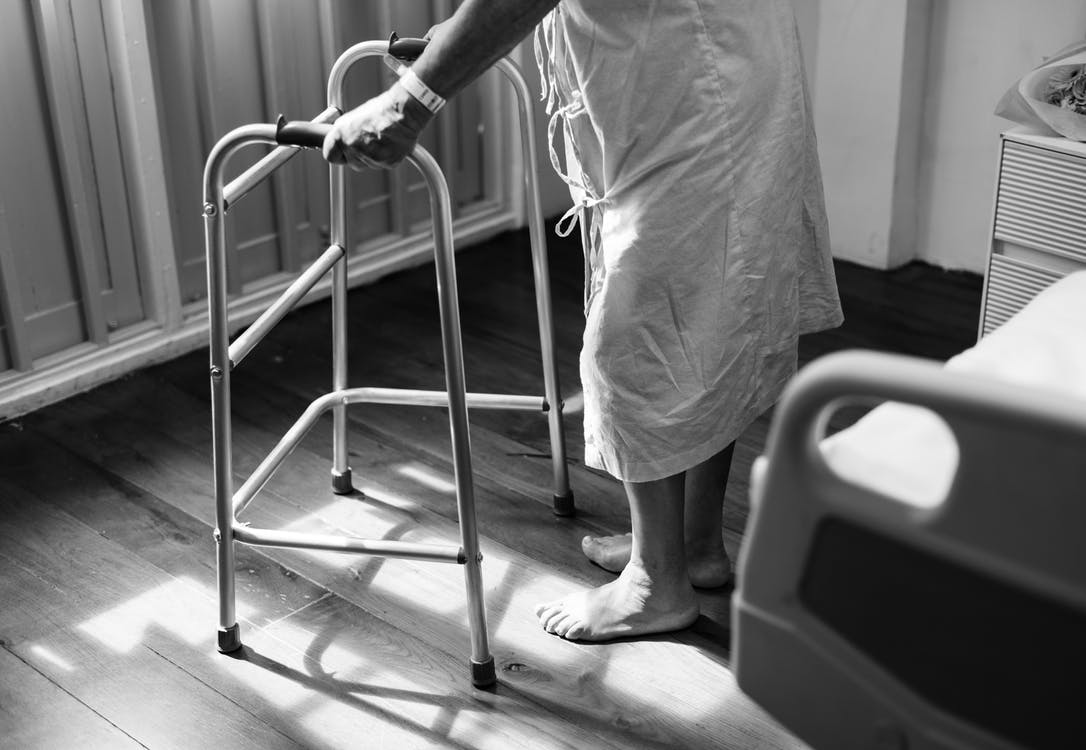 |
Reducing long hospital stays
NHS Improvement has published a Guide to reducing long hospital stays. This guide offers practical steps and tactics to support the NHS and partners to use an optimal approach to managing hospital length of stay. Accompanying the guide are a number of case studies and other resources. |
|
 |
Getting hospital discharge right
The British Red Cross have published 'Getting hospital discharge right'. The report sets out recommendations to improve care when patients return home from hospital. |
|
.jpg) |
Health and care workforce: key areas for action
The Health Foundation, King’s Fund and Nuffield Trust have published Closing the gap: key areas for action on the health and care workforce. This report sets out a series of policy actions that, evidence suggests, should be at the heart of the workforce implementation plan. It focuses on nursing and general practice where the workforce problems are particularly severe. |
|
 |
Outdoor air quality and health
Public Health England has published Improving outdoor air quality and health: review of interventions. This document reviews the evidence for practical interventions to reduce harm from outdoor air pollution. |
|
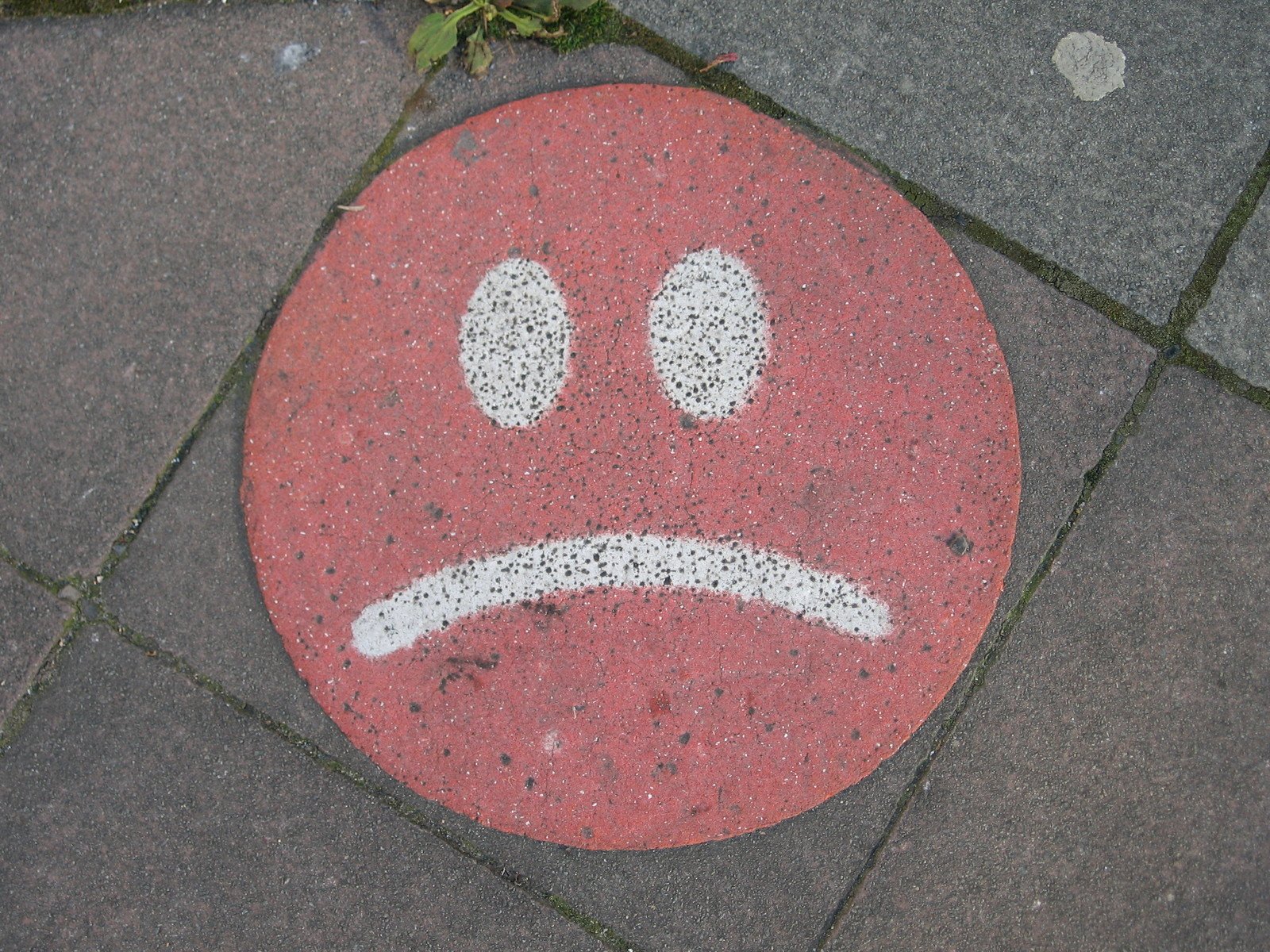 |
Public satisfaction with the NHS and social care
The King’s Fund and Nuffield Trust have published Public satisfaction with the NHS and social care in 2018: results from the British Social Attitudes survey. This document presents the results of a survey of 2,926 members of the public about their satisfaction with the NHS overall, and 973 people about their satisfaction with individual NHS and social care services. |
|
 |
Medical devices: patient information
The Medicines and Healthcare products Regulatory Agency has published Medical devices: information for users and patients. This webpage provides Information and guidance on a range of medical devices for users and patients. |
|
 |
Allied Health Professionals
Health Education England has published Allied Health Professionals at the forefront of improving care – a year in review 2017/18. This document reviews HEE’s work to develop and strengthen Allied Health Professions (AHPs) in England. |
|
 |
Pain management outcome measures
The Faculty of Pain Medicine of the Royal College of Anaesthetists and the British Pain Society have developed a guidance document containing outcome scales appropriate to pain management. The commonly used scales are designed to be completed by adults over 16 before and after treatment. For each scale, a brief description is given with main advantages and disadvantages, and information on use and copyright. |
|
 |
Antimicrobial resistance
The Department of Health and Social Care has published a 20-year vision and a 5-year national action plan for containing and controlling antimicrobial resistance (AMR). |
|
 |
Black and minority ethnic staff at senior levels
NHS England has published A Model Employer: Increasing black and minority ethnic representation at senior levels across the NHS. This document outlines the ambitions set by NHS England and NHS Improvement and reflected in the Long Term Plan, for each NHS organisation to set its own target for BME representation across its leadership team and broader workforce. |
|
 |
NHS long term plan
NHS England has published The NHS Long Term Plan. The plan is intended to make the NHS fit for the future and to get the most value for patients out of the taxpayers’ investment. It focuses on making sure everyone gets the best start in life, delivering world-class care for major health problems and supporting people to age well. |
|
 |
NHS safety culture: reducing never events
The Care Quality Commission has published Opening the door to change: NHS safety culture and the need for transformation. This report examines the underlying issues in NHS trusts that contribute to the occurrence of Never Events and the learning that can be applied to wider safety issues. |
|
 |
The future of surgery
The Independent Commission on the Future of Surgery has published its report Future of surgery. It sets out a vision of the future of surgery in the UK, setting out the changes that are likely to occur over the next 20 years, in the delivery of surgical care. |
|
 |
Shared responsibility for health
The King’s Fund has published Shared responsibility for health: the cultural change we need. This ‘long read’ argues that one of the biggest challenges facing the NHS is cultural, specifically between the public and the NHS and between patients and staff; |
|
 |
Letting local systems lead
The NHS Confederation has published Letting local systems lead: how the long-term plan could deliver a more sustainable NHS. This paper sets out the findings from a survey of senior leaders which sought a frank assessment of where local health and care systems currently are and what the key issues are that the NHS long-term plan needs to address. |
|
 |
Budget 2018
The Health Foundation, King’s Fund and Nuffield Trust have published a joint briefing Budget 2018: what it means for health and social care which looks at the detail within the 2018 Budget and what it means for the NHS, social care. |
|
 |
Winter planning in emergency departments
The Royal College of Emergency Medicine has published Improving safety in the emergency department this winter. This document is aimed at Trust and Hospital Boards to help them oversee how to maximise the resources they have to better support staff and manage the increased demand that winter brings. |
|
 |
Tackling loneliness
The What Works Centre for Wellbeing have produced a report on the very important, prevalent and current issues of loneliness. The report is a "review of reviews", looking at information from around the world, to seek to to determine what do we know about reducing loneliness. |
|
 |
State of care
The Care Quality Commission (CQC) publish their annual assessment on the state of health and social care in England. The report looks at the trends, shares examples of good practice and outstanding care, and highlights where care needs to improve. |
|
 |
Early diagnosis of cancer
The Department of Health and Social Care has announced plans for the earlier diagnosis of cancer. As part of the long-term plan for the NHS, a package of measures will be rolled out across the country with the aim of seeing 3 out of 4 of all cancers detected at an early stage by 2028. The plan will: overhaul screening programmes, provide new investment in state-of-the-art technology to transform the process of diagnosis, and boost research and innovation. |
|
 |
Physical activity in Europe
The World Health Organisation as published a set of physical activity factsheets providing an updated overview of the epidemiology of physical inactivity, national policy responses and current monitoring and surveillance systems across the WHO European Region. |
|
 |
Integrated care systems
The King’s Fund has published A year of integrated care systems: reviewing the journey so far. This report explores progress in eight out of the 10 first-wave ICS areas and identifies emerging lessons for local systems and national policy-makers. |
|
 |
Seamless services
The NHS Confederation has published Seamless services to improve outcomes for people. The briefing provides an insight into the aims of providing seamless services and showcases the different ways health and care are now delivered. |
|
 |
The NHS funding settlement and ten year plan
NHS providers have produced this briefing providing further information for governors on the announcements following the Prime Minister tasking the NHS with producing a long-term plan setting out how the service intends to deliver major improvements with the new funding available. |
|
 |
Rethinking outpatient services
The Nuffield Trust has published Rethinking outpatient services: learning from an interactive workshop. This briefing summarises learning from an event to hear from people who had made significant changes to their outpatient services about what they did and the impact it had to date. It focuses on three areas: how patients were referred to outpatient services, what happened when they were there, and follow-up care. |
|
 |
Major trauma centres
The Trauma Audit and Research Network has published Changing the system: major trauma patients and their outcomes in the NHS (England) 2008-17. The findings show the creation of major traumas centres has led to the survival of more than 1,600 patients who have suffered some of the most severe and complicated injuries. Patients also spent fewer days in hospital and had improved quality of life after receiving critical care. |
|
 |
Impact of new medicines
The Office of Health Economics has published The impact of new medicines in the NHS: 70 years of innovation. The report demonstrates the contribution and impact of medicines to the health economy in the UK throughout the 70-year history of the NHS. |
|
 |
Reducing ethnic health inequalities
Public Health England has published Local action on health inequalities: understanding and reducing ethnic inequalities in health. This report provides guidance to support local and national action on ethnic inequalities in health. |
|
 |
Toolkit for a sustainable health workforce
The World Health Organisation Regional Office for Europe has published The toolkit for a sustainable health workforce in the WHO European Region (2018). The toolkit is aimed at policy-makers, human resources for health (HRH) planners and professionals, and other stakeholders, such as education institutions and those implementing policy. |
|
 |
Learning from ‘Never Events’
The Care Quality Commission has published an update on work to review issues that contribute to the occurrence of Never Events. These slides provide an update to the work currently underway and list some of the main themes which are starting to emerge. |
|
 |
Celebrating 70 years of the NHS - Individuals who have made a difference
The Care Quality Commission has published 70 case studies highlighting individuals who have gone ‘over and above’ and made a significant impact on the care people receive across health and social care services. The case studies cover acute trusts, mental health trusts, primary care and social care. |
|
 |
Impact of new technology on the NHS
The Health Foundation, Institute for Fiscal Studies, The King’s Fund and the Nuffield Trust have published the final briefing in their series marking 70 years of the NHS. What will new technology mean for the NHS and its patients? looks at the uptake and potential of the following trends in technology: genomics and precision medicine; remote care; technology supported self-management such as apps and wearables; and data analytics and artificial intelligence. |
|
 |
Leadership of allied health professions in trusts
NHS Improvement has published Leadership of allied health professions in trusts: what exists and what matters. The report describes evidence from NHS providers, and its primary audience is intended to be board members and AHPs within those trusts. |
|
 |
Response to major incidents
The NHS Confederation has published 'When tragedy strikes: reflections on the NHS response to the Manchester Arena bombing and Grenfell Tower fire'. This document summarise interviews to capture learning from the NHS response to these events in 2017 and draws out key issues for leaders to consider. |
|
 |
Childhood obesity
The Health and Social Care Select Committee has published Childhood obesity: time for action. The Government is expected to publish shortly a refreshed version of the childhood obesity plan. This report outlines the key areas which demand attention as a matter of urgency by the Government before the next chapter of the plan is finalised. |
|
 |
Workforce Health and Wellbeing Framework
NHS Employers, NHS England and NHS Improvement have launched a Workforce Health and Wellbeing Framework. This framework brings together best practice, research and insights to help NHS organisations improve staff health and wellbeing. |
|
 |
Mapping the NHS winter
NHS Providers has published its final overview of its Winter watch series Mapping the NHS winter. This briefing presents the winter of 2017/18 in numbers and looks at pressures on the ambulance service, pressures in A&E, capacity and what can be done to ensure the health service is ready next winter. |
|
 |
NHS Cyber security
The Department of Health and Social Care has announced new measures to strengthen NHS cyber security. The measures include a new deal with Microsoft to ensure all health and care organisations are using the latest Windows 10 software, a new digital security operations centre, upgrades to firewalls and network infrastructure, a data security and protection toolkit and a text messaging alert system in the event of internet and email services outages. |
|
 |
Lord Darzi review of health and care
IPPR has published The Lord Darzi review of health and care: interim report. This report sets out evidence of what has happened to the quality of health and social care and how readily people can access the care they need. It explores health and social care funding and makes an assessment of the impact of the reforms to the sector. |
|
 |
Reducing waste
The Royal College of Physicians has published Less waste more health: a health professionals guide to reducing waste. This report explains how health professionals can positively influence societal health and wellbeing by making simple changes to the procurement and disposal of medical supplies. It contains a range of case studies and makes 12 recommendations |
|
 |
Emotional and mental health needs of people with cancer
The Mental Health Foundation has published Supporting the emotional and mental health needs of people with cancer. This research explores the emotional and mental health needs of people living with cancer in Scotland. It identifies the major negative impacts of cancer on mental health, how effective support can be delivered, the barriers to support, and the unmet mental health support needs. |
|
 |
NHS delivery in 2018/19
NHS Providers has published the report Tough Task: The NHS delivering for patients and staff in 2018/19. The report presents an assessment of the challenges facing NHS trusts in the coming financial year. Based on analysis of the most recent official data and a survey of NHS trust leaders, the report looks at the ability of the service to meet performance and financial targets in 2018/19. |
|
 |
Water fluoridation
Public Health England has published Water fluoridation: health monitoring report for England 2018. This 2018 monitoring report compares data on the health of people living in areas of England with varying concentrations of fluoride in their drinking water supply. It shows water fluoridation helps reduce tooth decay and that there is no convincing evidence of adverse health effects. |
|
 |
NHS Reality Check 2018
The Royal College of Physicians has published NHS Reality Check: update 2018. This report presents the views of over 1500 doctors working in the NHS who provided their experiences of delivering care. |
|
 |
NHS workforce race equality
NHS England has published NHS workforce race equality: a case for diverse boards. This report highlights the importance of inclusive boards in the NHS and provides guidance on working towards creating inclusive cultures. |
|
 |
Reducing emergency admissions
The National Audit Office has published Reducing emergency admissions. The report examines progress that the Department of Health & Social Care, NHS England, NHS Improvement and other stakeholders are making in reducing the impact of emergency admissions on acute hospitals. The report takes a whole-system approach, and looks at action across acute, primary, community and social care systems. |
|
 |
Cancer strategy
The House of Commons Library has published Cancer strategy. This debate pack outlines progress so far in implementing the cancer strategy and provides statistics on survival rates and the NHS cancer workforce. It also collates commentary and analysis from official, parliamentary and third sector organisations. |
|
 |
Staff wellbeing and patient experience of care
Picker and The King’s Fund have published 'The risks to care quality and staff wellbeing of an NHS system under pressure'. This analysis considers the relationships between the self-reported experiences and wellbeing of NHS staff, measures of workforce pressures in the health system, and patients’ experiences of their care. The report suggests there are relationships between staff wellbeing, patient experiences of their care, and the proportion of money NHS trusts spend on agency workers. |
|
 |
State of child health
The Royal College of Paediatrics and Child Health has published State of Child Health: one year on. These scorecards describe progress against recommendations made a year ago in the RCPCH’s State of Child Health report. The England scorecard reveals progress in some areas but no improvement in several fundamental areas. In particular, public health spending cuts are disproportionately affecting children’s services. |
|
 |
Never Events policy and framework
NHS Improvement has revised the Never Events policy and framework and Never Events list 2018. The policy and framework explains what Never Events are, how staff providing and commissioning NHS-funded services should identify, investigate and manage the response to them. These documents will become active upon initiation of the update to the 2017-2018 NHS Standard Contract on 1 February 2018. |
|
 |
Royal commission on the NHS
The Centre for Policy Studies has published A Royal Commission on the NHS: the remit. This document sets out how the setting up of a Royal Commission could ensure the NHS delivers the best outcomes on a sustainable financial basis over the coming years. A Royal Commission would examine the structure, organisation and funding of the health service, taking evidence and making policy recommendations. |
|
 |
Delayed transfers of care
The King’s Fund has published Delayed transfers of care: a quick guide. This article defines delayed transfers of care and looks at how they are measured, why they occur and their impact on the wider health system. |
|
 |
Dignity in health care for people with learning disabilities
The Royal College of Nursing has published Dignity in health care for people with learning disabilities. This guidance aims to improve dignity in health care for people with learning disabilities. It is designed particularly to support the nursing workforce but other health care and social care staff may find this useful. |
|
 |
Ready and resilient? How NHS trusts have prepared for winter
This briefing by NHS Providers sets out what has been done locally and nationally to ensure safe, high quality care for patients over the winter period. It also highlights continuing difficulties and pressures that could impact on trusts’ ability to cope. |
|
 |
Safer maternity care
The Department of Health has now published Safer Maternity Care: the National Maternity Safety Strategy progress and next steps. This document reports on progress and next steps with implementation of the safer maternity care action plan and sets out measures for further and quicker improvement. |
|
 |
Nutritional care tool report
The BAPEN Quality and Safety Committee has published Nutritional Care Tool Report 2017. It provides organisational-level data on how nutritional care is organised and patient-level data on the quality of nutrition in hospitals, care homes and community organisations. |
|
 |
EU doctor survey 2017
The British Medical Association has published the results of the EU doctor survey 2017. The results show that nearly half of all EU doctors working in the UK are considering leaving the UK, with almost one in five having solid plans to relocate elsewhere. |
|
 |
Embedding a culture of quality improvement
The King’s Fund has published a new report which includes learning from organisations that have adopted quality improvement approaches. It focuses on how senior leaders can create the right conditions for quality improvement to flourish within health care. |
|
 |
Improving patient access to breakthrough technologies and treatments in a cost-effective model
The Department of Health and Department for Business, Energy & Industrial Strategy have announced a new fast-track route into the NHS for “breakthrough” medicines and technologies. This will speed up the time it takes for patients to benefit from ground-breaking products for conditions such as cancer, dementia and diabetes. This Policy paper is a joint response to the Accelerated Access Review (AAR), setting out how government will improve patient access to breakthrough treatments. |
|
 |
Thriving at work
The Department of Work and Pensions and the Department of Health have published Thriving at work: the Stevenson/Farmer review of mental health and employers. This independent review sets out what employers can do to better support all employees to remain in and thrive through work. The review quantifies how investing in supporting mental health at work is good for business and productivity and makes a series of recommendation for employers, the government and other bodies. |
|
 |
The State of Care
The Care Quality Commission has published The state of health care and adult social care in England 2016/17. This report provides an analysis of the quality of health and social care in England based on the first full round of rated inspections covering nearly 29,000 services. |
|
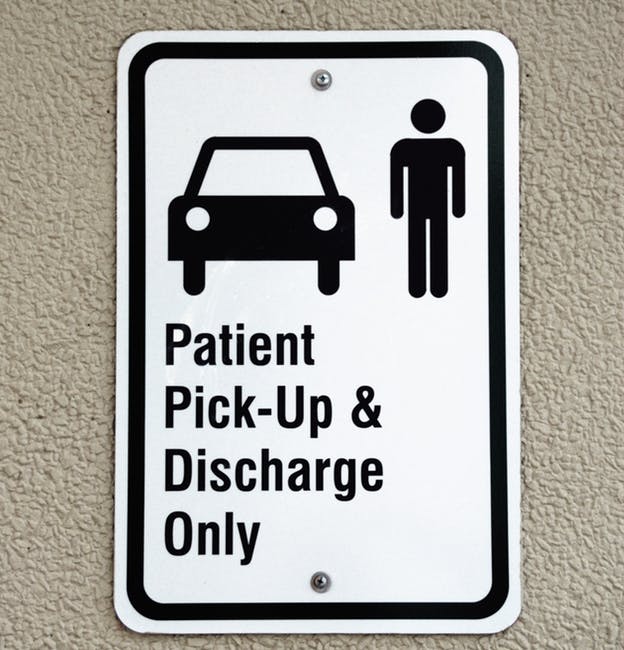 |
What happens when people leave hospital and other care settings?
This briefing from Healthwatch brings together a summary of the experiences over 2000 people have shared with local Healthwatch during the last two years relating to leaving hospital and other care settings. Although there are many positive experiences, the briefing highlights there is still significant work to be done to ensure discharge is a good experience for everyone. |
|
 |
Engineering better care
The Royal Academy of Engineering, the Academy of Medical Sciences and the Royal College of Physicians have published Engineering better care: a systems approach to health and care design and continuous improvement. This report explores how an engineering approach could be applied in health and social care to develop systems that meet the needs of patients, carers and NHS staff. |
|
 |
Health Service Safety Investigations Bill
The Department of Health has published a bill proposing setting up a new independent healthcare safety investigation body to improve patient safety. |
|
 |
Partnerships for improvement: ingredients for success
This report by The Health Foundation discusses NHS organisational partnerships. It focuses on five different partnering arrangements, as well as interviews with national leaders, and draws learning to help inform and guide policymakers and providers. |
|
 |
The bottom line: Understanding the NHS deficit and why it won’t go away
This briefing by The Nuffield Trust reveals the true underlying state of the NHS’s finances today, and outlines prospects for the next three to four years. |
|
 |
Improving older people's oral health
The Royal College of Surgeons Faculty of Dental Surgery has published 'Improving older people’s oral health'. This report raises concerns about the impact that poor oral health is having on older people’s general health and quality of life.
|
|
 |
Work related mental health problems
New survey results from Mind show that men are twice as likely to have work-related mental health problems compared to problems outside of work. |
|
 |
Influence of surroundings on health
The Health Foundation has published an infographic and commentary on Our surroundings. It aims to demonstrate how health is influenced by how places, spaces and buildings make us feel, and the opportunities they provide. It illustrates how good surroundings can enable people to: be more physically active; feel safe and secure; use facilities and services and socialise and play. |
|
 |
National Audit of Dementia Care in General Hospitals 2016-2017: third round of audit report.
This report commissioned by the Healthcare Quality Improvement Partnership presents the results of the third round of the National Audit of Dementia (NAD) with collected data between April and November 2016. The audit measures the performance of general hospitals against criteria relating to care delivery which are known to impact upon people with dementia while in hospital. |
|
 |
Spatial planning for health: an evidence resource for planning and designing healthier places.
Public Health England have published this report presents the findings from an evidence review examining the links between health and the built and natural environment to help inform policy and support local action. The review explores neighbourhood design; housing; access to healthier food; natural and sustainable environment; and transport. |
|
 |
Tackling variations in clinical care: assessing the Getting It Right First Time (GIRFT) programme.
Published by the King's Fund, the Getting It Right First Time (GIRFT) programme aims to bring about higher-quality care in hospitals, at lower cost, by reducing unwanted variations in services and practices. This paper sets out what the programme is, why it is needed, what is different about it, what it has achieved, what challenges it faces and what potential it has. It also contains vignettes illustrating hospitals’ experiences of the programme.
|
|
 |
Perinatal mortality surveillance report: UK perinatal deaths for births from January to December 2015.
Published by MBRRACE-UK this report examines rates of stillbirth and neonatal death across the UK for babies born at 24 weeks of gestation or more. It found that in 2015 the stillbirth rate was 3.87 per 1,000 total births, a fall from 4.20 per 1,000 total births in 2013. However this is still high compared to many similar European countries and there remains significant variation across the UK. |
|
 |
Election analysis: what does the new government mean for health and care?
Published by the NHS Confederation -This briefing is an initial assessment of the main takeaways for the NHS and the wider health and care system. It identifies areas of alignment and disagreement between the Conservatives and the Democratic Unionist Party in Norther Ireland, and the NHS Confederation’s priorities for the new government. |
|
 |
International profiles of health care systems
Published by The Commonwealth Fund, this publication presents overviews of the health care systems of Australia, Canada, China, Denmark, England, France, Germany, India, Israel, Italy, Japan, the Netherlands, New Zealand, Norway, Singapore, Sweden, Switzerland, Taiwan, and the United States. |
|
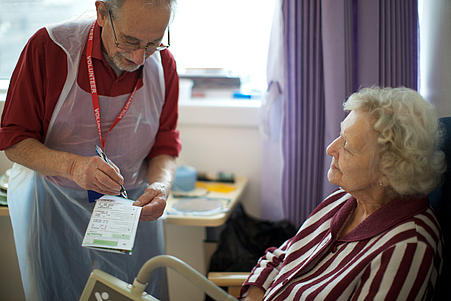 |
What’s the hold up?
Produced by the NHS Confederation, this infographic provides data on delayed discharge of care, and details the most common factors for delayed days in 2016. |
|
 |
Occupational health: the value proposition.
Published by The Society of Occupational Medicine, this report highlights the value that occupational health services can give in reducing long term sickness and promoting a healthy workplace culture. This report is aimed at policy makers and commissioners of services. |
|
 |
Quality of care in the NHS – in the balance
Published by The Health Foundation, this briefing provides a high level view of how the quality of some NHS services has changed over the past few years in England. The four aspects of quality covered are waiting times for hospital treatment; care for patients with diabetes; psychological therapy for common health conditions; and speed and use of the most effective best-practice treatments. |
|
 |
Caring to change: how compassionate leadership can stimulate innovation in health care.
Published by The Kings Fund, this paper looks at compassion as a core cultural value of the NHS and how compassionate leadership results in a working environment that encourages people to find new and improved ways of doing things. The paper includes case studies of how compassionate leadership has led to innovation. |
|
 |
BLOCKS: tools and methodologies to access integrated care in Europe
Health Systems Performance Assessment from The European Commission’s Expert Group. Drawing on insights from experts from seventeen European countries, the report looks at the factors behind successful integrated care models including stakeholder engagement, patient empowerment and the use of information and communications technology. |
|
 |
Physical Inactivity Report 2017
This report from The British Heart Foundation provides an overview of the levels of physical inactivity and sedentary behaviour in adults across the UK. The data in this report suggests that large numbers of people in the UK are failing to meet government recommendations for physical activity, putting them at greater risk of heart and circulatory disease. |
|
 |
NHS Women on Boards by 2020.
Published by NHS Employers - This report examines the steps the NHS needs to take to reach the target of equal gender representation on boards by 2020. It summarises demographic data from 452 organisations, including arms-length bodies, NHS trusts and clinical commissioning groups. |
|
 |
How health care is funded.
This briefing from The Kings Fund looks at the way that health care funding models vary between different countries. It explains the main models used to finance health care: taxation, private health insurance and social health insurance. It outlines how each model works in its purest form, while recognising that most countries typically pay for health care using a combination of methods. |
|
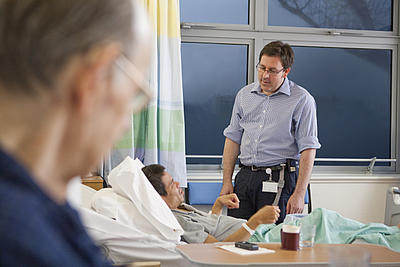 |
NHS reality check: delivering care under pressure.
This report from The Royal College of Physicians (RCP) summarises the experiences of RCP members on the front line of care delivery. The report suggests that all doctors providing care across the medical spectrum are struggling to cope, not just those in urgent and emergency care. |
|
 |
Shifting the balance of care: great expectations.
Published by the Nuffield Trust, this report is based on a literature review assessing the evidence for moving care out of hospital and the assumption that it will save money. It explores five key areas: elective care, urgent and emergency care, admission avoidance and easier discharge, at risk populations, and self-care. The report is intended to help inform local strategies and STPs. |
|
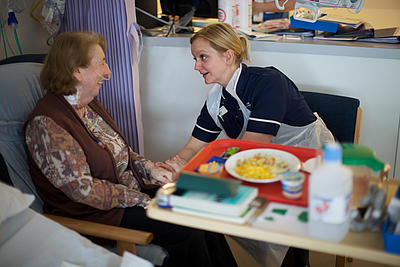 |
The state of care in NHS acute hospitals: 2014 to 2016
Published by The Care Quality Commission. Findings from the end of CQC’s programme of NHS acute comprehensive inspections. The report has been derived from three years’ worth of CHC inspections into the quality of care being provided by NHS acute hospitals. It finds that most hospitals are delivering good quality care and looking after patients well, however, some trusts have blind spots about the quality of care they are delivering in a particular core service, even in some trusts rated good overall. |
|
 |
NHS Employers - Tackling cyberbullying in the NHS: what you need to know.
This guide has been developed to help HR and communications teams in the NHS tackle the issue of cyberbullying. It includes practical steps and tips as well as providing a template policy on cyberbullying which can be adapted to suit local needs. |
|
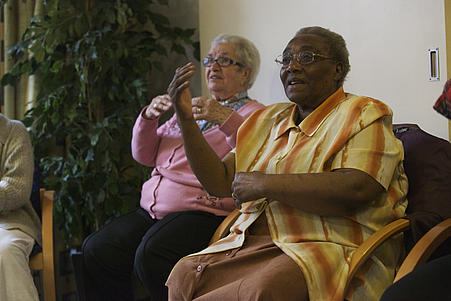 |
Understanding Society - A healthy understanding? Global attitudes to health
Published by Ipsos MORI, this report examines the state of health at both a national and global level covering patient experience and expectations, behavioural interventions, the importance of health literacy, exporting healthcare, the opportunities and challenges of ageing populations and sustainable development goals. of evidence looks at what works in supporting older people to maintain a healthy diet and reduce the risk of malnutrition. It includes details of promising practice, to see what others are doing and the impact their work is having. |
|
 |
Helping older people maintain a healthy diet: a review of what works
Published by Public Health England, this review of evidence looks at what works in supporting older people to maintain a healthy diet and reduce the risk of malnutrition. It includes details of promising practice, to see what others are doing and the impact their work is having. |
|
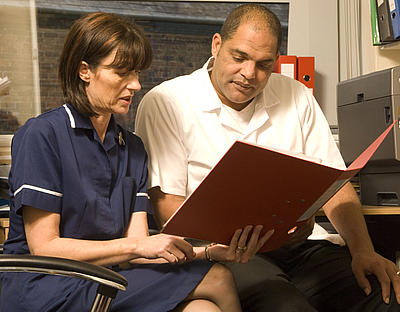 |
Confidentiality: good practice in handling patient information.
The General Medical Council (GMC) has published revised, expanded and reorganised guidance on confidentiality for all doctors practising in the UK. This guidance clarifies the public protection responsibilities of doctors; the importance of sharing information for direct care; the circumstances in which doctors can rely on implied consent to share patient information for direct care; and the role that those close to a patient can play in providing support and care. (January 2017) |
|
 |
My data, my care: how better use of data improves health and wellbeing
Published by The Richmond Group of Charities, January 2017 - This report uses case studies to show why data is critical for good healthcare and the tangible benefits which can be gained from its use. The report also highlights the barriers to good data use including: technological barriers, uncertainty around information governance, and a lack of public trust. |
|
 |
NHS England Indicators - January 2017
Published by The House of Commons library - This briefing on demand and performance covers areas such as: A&E, waiting lists, delayed transfers of care, staffing levels, and demand for hospital services. Key trends from the most recent NHS data in England are presented. |
|
 |
Priorities for the NHS and social care in 2017.
Published by The Kings Fund, the report describes the need for a continuing focus on operational performance and renewed efforts to transform the delivery of care at a time when frontline staff are working under intense pressure. |
|
 |
Learning, candour and accountability: a review of the way NHS trusts review and investigate the deaths of patients in England.
Published by The Care Quality Commission, this report presents the findings of a review into how NHS trusts identify, investigate and learn from the deaths of people under their care. It concludes that many carers and families do not experience the NHS as being open and transparent and that opportunities are missed to learn across the system from deaths that may have been prevented. |
|
|



